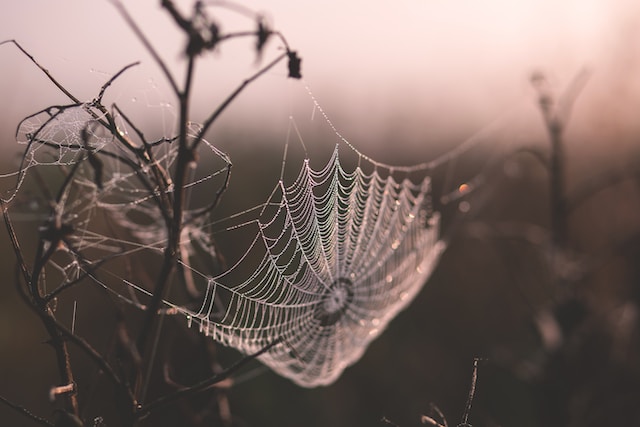The social media feeds were in atwitter in the little Southern Tablelands town of Goulburn, Australia in mid-May when folks found their properties covered in wisps of white spider weavings. The young of some species of arachnids weave their silk into what becomes a parachute, waiting for the optimal moment of weather conditions. Then, they catch the wind and set off to populate a new area.
While “raining cats and dogs” is just an expression (and a very odd one at that), “raining spiders” is an occasional reality across the globe. It was witnessed in another Australian town in 2012, in Brazil in 2013, and in Flagstaff, AZ in 2014.
Though not actually “raining” down from the sky, the skies fill with spiders and their “angel hair” as they take to ballooning as a migration tactic. No wonder “clutter” is the very appropriate collective noun for a group of spiders. From time to time, they’ve been known to blanket entire structures.
What is really taking place is that the baby and young spiders all crawl to the top of the plant or tree they are in and start spinning silk, which gets caught in the wind, clouding the air with spiders and silky threads, until they converge on a new landing site.
They pose no direct harm to humans, animals, or plants; they don’t bite and don’t devour crops, but their sheer numbers could reduce available sunlight. But no worry. Their visit as a clutter (aka cluster) of spiders will disperse as soon as the weather shifts and then life in Goulburn can return to normal.
Whether this scenario was viewed as a scene from a horror movie or a thrillingly phenomenal event depended on whether it was viewed by an arachnophobe or an arachnophile. Count me as the latter. I would love to have a rare chance to view this spectacle of nature.







